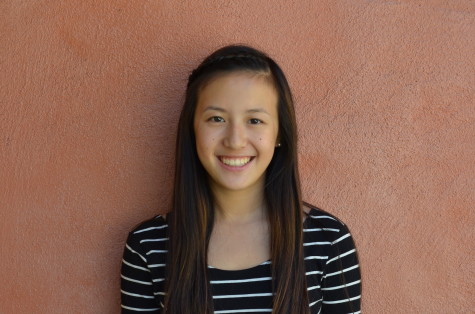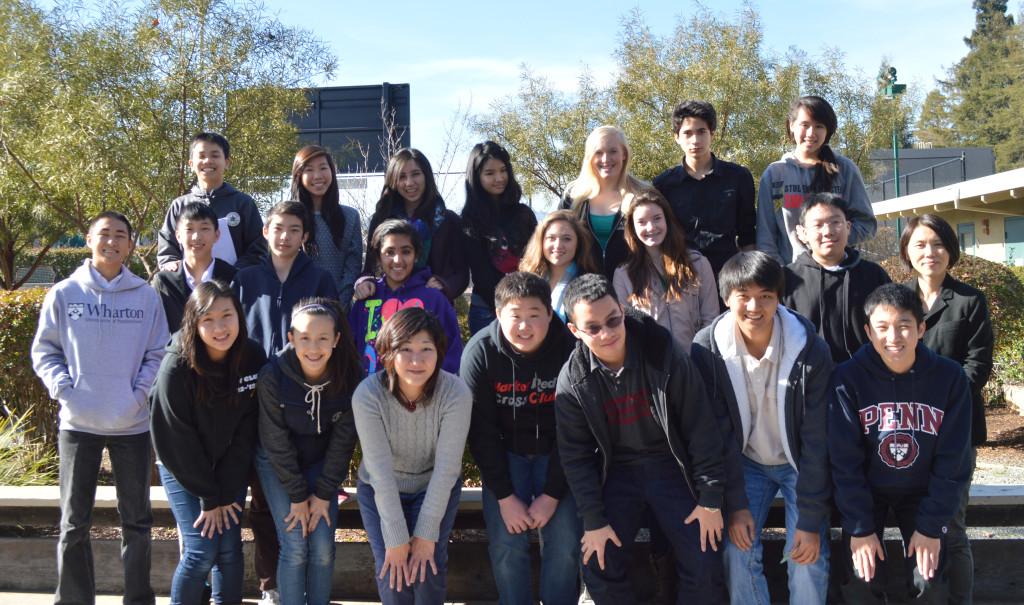Q&A with Tamagawa orchestra teacher
Tamagawa school orchestra teacher Michiko Takahashi visited the Upper School for two weeks in January as part of the teacher exchange program.
In addition to relating her story of becoming a teacher, Takahashi described her experience staying in America and noted key differences between the two cultures.
Q: Why did you decide to become a teacher?
A: I have always liked music since I was a child, so I wanted as many children as possible to enjoy music as well.
Q: What are some major differences between Japanese high school students and American high school students?
A: Japanese students are rather passive. American high school students are more active about finding what they like to do and pursuing what they want to do.
Q: What has been your favorite part of America so far? How about Harker?
A: I feel that the time passes by a little more slowly here in America, in a relaxing leisurely way. There are many good things about Harker, but what I like especially are how the students always try to challenge themselves. During passing periods and free periods, students seem to be calmer. In Japan, students tend to be chattier and livelier.
Q: What was the best place you visited?
A: I really love Snoopy, so it has to be the Snoopy Museum in Santa Rosa. The Golden Gate Bridge was also the most memorable place.
Q: What are some stereotypes that you have heard about America?
A: Food here was not as greasy; it was healthier than I expected. Other than that, everything else was what I expected. People were friendly and nice, and I am enjoying my time here.
Q: What do you think are the benefits of the Harker-Tamagawa relationship?
A: In Tamagawa, even though Japanese students study English at school, they don’t know how to speak it. So by being able to experience this exchange program, they will get opportunities to practice their English skills when they come.
Q: As a music teacher in Tamagawa, what differences have you noticed in the orchestras?
A: Orchestra isn’t part of the curriculum in Tamagawa. Students who want to do it do it every single day after school as an extracurricular activity. It is part of the curriculum at Harker, and it is one of the biggest differences. Tamagawa students also practice during the weekend.
Q: Why did you decide to participate in the teacher exchange program?
A: Even if I can’t communicate using the target language, I wanted to challenge myself to see if I would be able to communicate with the children in the United States and teach them the joy of singing and music.

Shannon Su is the Managing Editor and Executive News Director of Harker Aquila. She joined the program as a reporter her freshman year and has held many...


















![“[Building nerf blasters] became this outlet of creativity for me that hasn't been matched by anything else. The process [of] making a build complete to your desire is such a painstakingly difficult process, but I've had to learn from [the skills needed from] soldering to proper painting. There's so many different options for everything, if you think about it, it exists. The best part is [that] if it doesn't exist, you can build it yourself," Ishaan Parate said.](https://harkeraquila.com/wp-content/uploads/2022/08/DSC_8149-900x604.jpg)




![“When I came into high school, I was ready to be a follower. But DECA was a game changer for me. It helped me overcome my fear of public speaking, and it's played such a major role in who I've become today. To be able to successfully lead a chapter of 150 students, an officer team and be one of the upperclassmen I once really admired is something I'm [really] proud of,” Anvitha Tummala ('21) said.](https://harkeraquila.com/wp-content/uploads/2021/07/Screen-Shot-2021-07-25-at-9.50.05-AM-900x594.png)







![“I think getting up in the morning and having a sense of purpose [is exciting]. I think without a certain amount of drive, life is kind of obsolete and mundane, and I think having that every single day is what makes each day unique and kind of makes life exciting,” Neymika Jain (12) said.](https://harkeraquila.com/wp-content/uploads/2017/06/Screen-Shot-2017-06-03-at-4.54.16-PM.png)








![“My slogan is ‘slow feet, don’t eat, and I’m hungry.’ You need to run fast to get where you are–you aren't going to get those championships if you aren't fast,” Angel Cervantes (12) said. “I want to do well in school on my tests and in track and win championships for my team. I live by that, [and] I can do that anywhere: in the classroom or on the field.”](https://harkeraquila.com/wp-content/uploads/2018/06/DSC5146-900x601.jpg)
![“[Volleyball has] taught me how to fall correctly, and another thing it taught is that you don’t have to be the best at something to be good at it. If you just hit the ball in a smart way, then it still scores points and you’re good at it. You could be a background player and still make a much bigger impact on the team than you would think,” Anya Gert (’20) said.](https://harkeraquila.com/wp-content/uploads/2020/06/AnnaGert_JinTuan_HoHPhotoEdited-600x900.jpeg)

![“I'm not nearly there yet, but [my confidence has] definitely been getting better since I was pretty shy and timid coming into Harker my freshman year. I know that there's a lot of people that are really confident in what they do, and I really admire them. Everyone's so driven and that has really pushed me to kind of try to find my own place in high school and be more confident,” Alyssa Huang (’20) said.](https://harkeraquila.com/wp-content/uploads/2020/06/AlyssaHuang_EmilyChen_HoHPhoto-900x749.jpeg)



